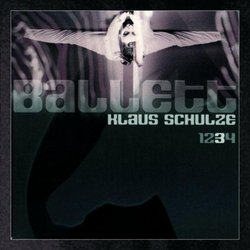Album DescriptionThis third edition of the Ballet (2000) series was written by Klaus to honour his mother, who was a dancer. This is the first time this Ballett 3 is available with bonus tracks and was previously only available on the limited edition Contemporary Works Volume 1 box, which is now deleted. Klaus Schulze explains: "Ballett 3 once again features traditional instrumentalists such as [violinist/flautist Thomas] Kagermann, [Wolfgang] Tiepold and Tobi [Tobias Becker]. Obviously I could have played Tobi's oboe or Tiepold's cello with a sampler but it's really something different for me when those instruments are played live as there is a wonderful interaction with my electronics. Then, you not only have the instruments but also the musicians' egos. If I play a cello sample then I'll do it the way I play keyboards. However, a cellist or oboist plays the `real' instrument with all the subtleties that come with playing, which a sample can never reproduce. The pure sound of an instrument is not the crucial thing here however. It's the musician's personality that is important as it determines the character of the music." "The bonus track Schauer Der Vorwelt is very short compared to my other works but there was no room left for a longer track on this disc. [Klaus Dieter] Müller thinks this could have almost been a hit single and perhaps he's right? Although I have to say that singles are not really my cup of tea, both from a performer and a listener's point of view. As a listener I'm a long-distance runner too because I think a musician's personality can be expressed much better on a longer piece than on a single. Anyway at least the fans once again get a few extra minutes as a bonus, which is something I care a lot about." Klaus Schulze first attracted attention as a member of the German progressive rock band, Tangerine Dream. Following the release of their debut LP, Electronic Meditation, he departed for a solo career. Klaus' recorded work typically features extended pieces sometimes filling an entire album built around computer-generated synthesizers and other specially programmed electronic effects. Klaus Schulze remains a cult figure in the United States, where the bulk of his prolific output has until now been available only through the import bins. He is widely considered an avant-garde mainstay as well as a founding father of both the new-age space music and electronica genres.


 Track Listings (2) - Disc #1
Track Listings (2) - Disc #1